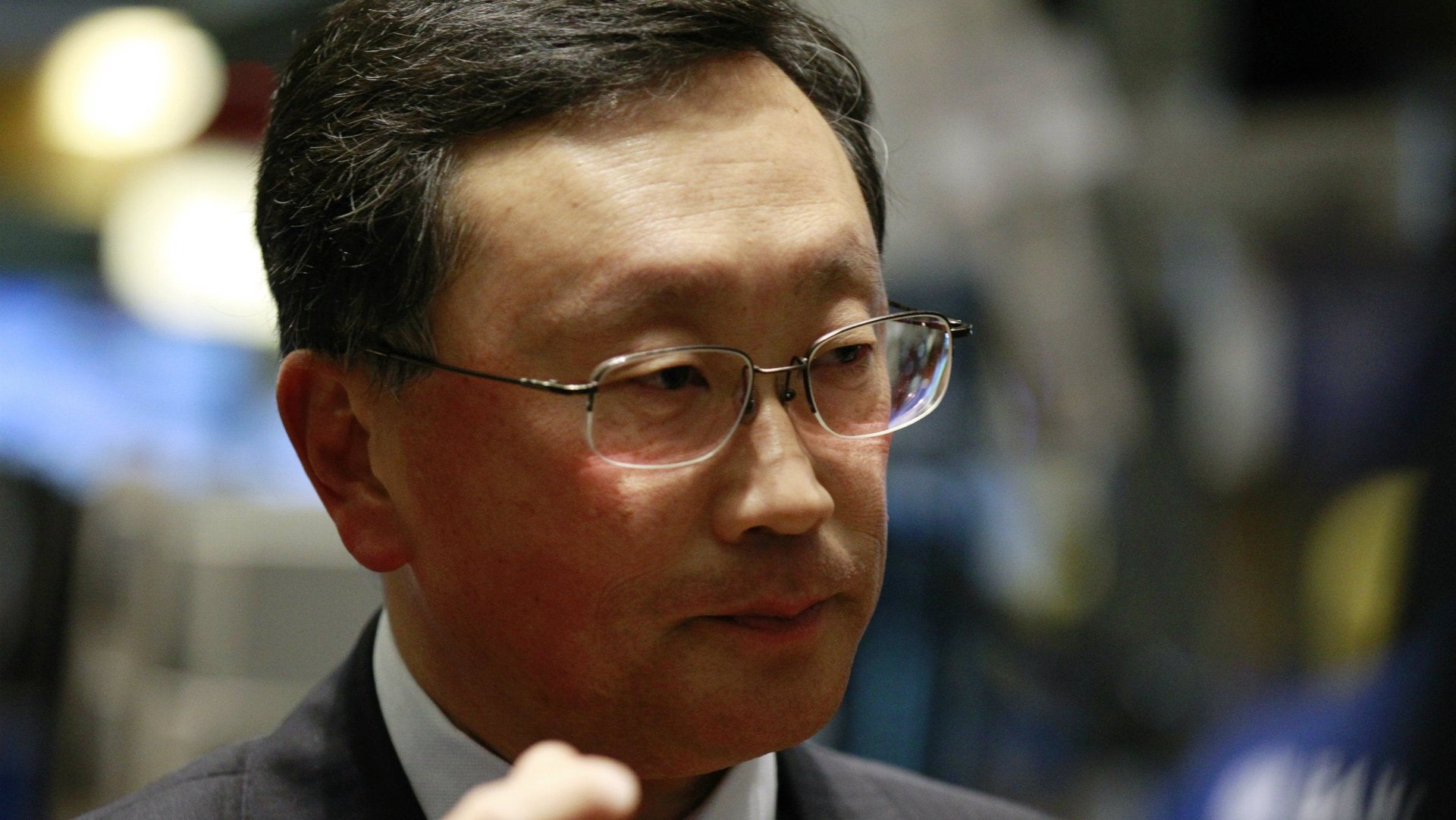BlackBerry’s new CEO could help the troubled company get closer to China—but not too close
John Chen, the newly-named chief executive of the downtrodden smartphone maker BlackBerry, is best known in the tech sector as an expert turnaround specialist. But he also boasts rich connections to China and years of encouraging US-China trade, which could potentially help BlackBerry find new customers and partners that it desperately needs.


John Chen, the newly-named chief executive of the downtrodden smartphone maker BlackBerry, is best known in the tech sector as an expert turnaround specialist. But he also boasts rich connections to China and years of encouraging US-China trade, which could potentially help BlackBerry find new customers and partners that it desperately needs.
Chen, 58, a Hong Kong native who emigrated to the US when he was 17, served on the US State Department-funded National Committee on US-China Relations, was a member of President George W. Bush’s Export Council, and is part of the “Committee of 100,” group founded in 1989 by prominent Chinese-Americans including architect I.M. Pei and cello player Yo-Yo Ma, according to his official biography from VC fund Silver Lake Partners.
“No two countries carry greater significance in the global economy than the US and China,” Chen said during a 2009 interview with USA Today. “An open trade relationship and increased market access in both directions are vital to the success of both our economies.”
Could BlackBerry have an open trade relationship in China, too? That depends in large part on the decisions of governments in Ottawa and Beijing.
Despite the company’s dire straights, the Canadian government vetoed a possible takeover by China’s Lenovo group, which had expressed an interest in acquiring BlackBerry’s patents and smartphone know-how, “because of national security concerns,” the Globe and Mail reported this week. BlackBerry operates a significant portion of the Canadian telecommunications network, and the conservative government in Ottawa has the same concerns that have largely kept Chinese telecom giant Huawei from doing business in the US.
Similarly, China and BlackBerry have a long and contentious history, with Beijing moving to block most of BlackBerry’s smartphone operations in the country because of concerns that the government would not be able to fully monitor communications that were routed through BlackBerry’s servers. Back in 2010, BlackBerry spent two years negotiating a joint venture with state-owned China Investment Corp, but the talks ultimately came to naught; BlackBerry’s market share in China is now effectively zero.
BlackBerry just got a $1 billion cash infusion, but burned through nearly that much cash in the last quarter alone, so if Chen is going to China for new customers or allies, he will need to move fast, or else face breaking the company up.